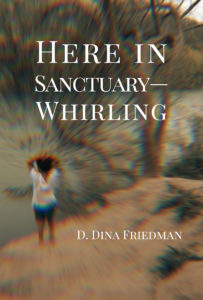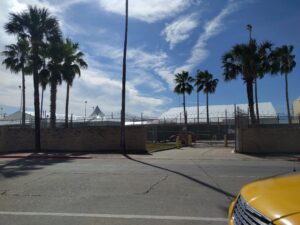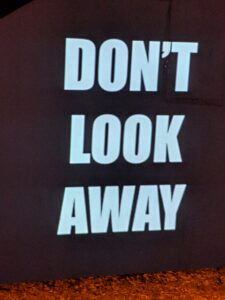I have always claimed, only half in jest, that tuning out was my superpower.
Too much nagging or irrelevant banter by members of my family or in social situations. No problem. I nod my head and hopefully make the appropriate noises while the rest of my brain lounges in some woodsy retreat cabin of my imagination.
I’ve been thinking a lot about “tuning out” this week as I recover from a minor concussion. For several days, my poor brain just refused to tune out anything, making it impossible to look out a bright window, or be in a space with too many clashing colors or in front of a screen with its array of flashing videos and words, words, words against the bright. blue light.
And whenever I tried to do too many of these things, my brain went haywire, and I had to spend the next hour in a dark room with the shades drawn. If only I could have had one of those float tanks!
 But now that I’m–thankfully–about 80% recovered, and preparing for my book launch of Here in Sanctuary–Whirling this Sunday, I’m also thinking about tuning in.
But now that I’m–thankfully–about 80% recovered, and preparing for my book launch of Here in Sanctuary–Whirling this Sunday, I’m also thinking about tuning in.
When I went to the border in 2020 I was determined not to fall into the distant malaise I often feel when the news becomes too overwhelming. While I know that there’s just so much sorrow one can handle, I knew that my role was to tune in as much as possible–so I could feel the joy of the teenager bounding across the bridge waving his white paper. I made it! he exclaimed. I got asylum!
 He was reportedly the only person in weeks that people had heard about who received a positive outcome form the infamous tent courts. And as witnesses gathered around to offer him a place to stay for the night and assistance to get to his brother in Florida, he told us the key to his “success.” I told them the gangs had killed my entire family. Other than my brother, I have no one.
He was reportedly the only person in weeks that people had heard about who received a positive outcome form the infamous tent courts. And as witnesses gathered around to offer him a place to stay for the night and assistance to get to his brother in Florida, he told us the key to his “success.” I told them the gangs had killed my entire family. Other than my brother, I have no one.
How to fathom the depths of that?
How to comfort the woman in the writing workshop sobbing over the picture she drew of her missing child, or the beefy young father folding into his arms in tears as he recounted his kidnapping together with his seven-year-old daughter. She told me she was hungry, and I had no food to give her. I couldn’t take care of her.
 Don’t Look Away! the sign read on the American side of the border, where witnesses stood every day, reminding us of our responsibility not to tune out.
Don’t Look Away! the sign read on the American side of the border, where witnesses stood every day, reminding us of our responsibility not to tune out.
As a writer, I’ve tried to take that responsibility seriously, attempting as best as I can to capture the joy, the sorrow, and the emotional complexity of salient moments, both in my work as an immigrant justice activist and every other aspect of my life. It’s a way of extending the witnessing work I did on the border, and letting others live that experience, or any other experience I feel compelled to share, with as close a lens as possible.
Yet at the same time, I recognize that to be effective in whatever we feel compelled to do, we need to take time to take care of ourselves, allowing our brains to rest in the dark room, or the land of the imagination, or whatever other equivalent a person might have in order to take a deep breath, regroup, and press on.
Hope to see some of you on Sunday! I’ll be reading poems that hold the joy as well as the sorrow.
